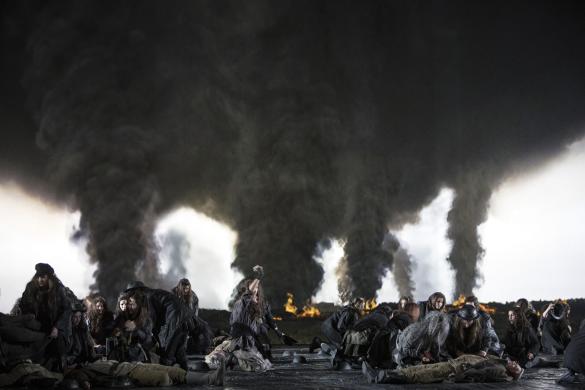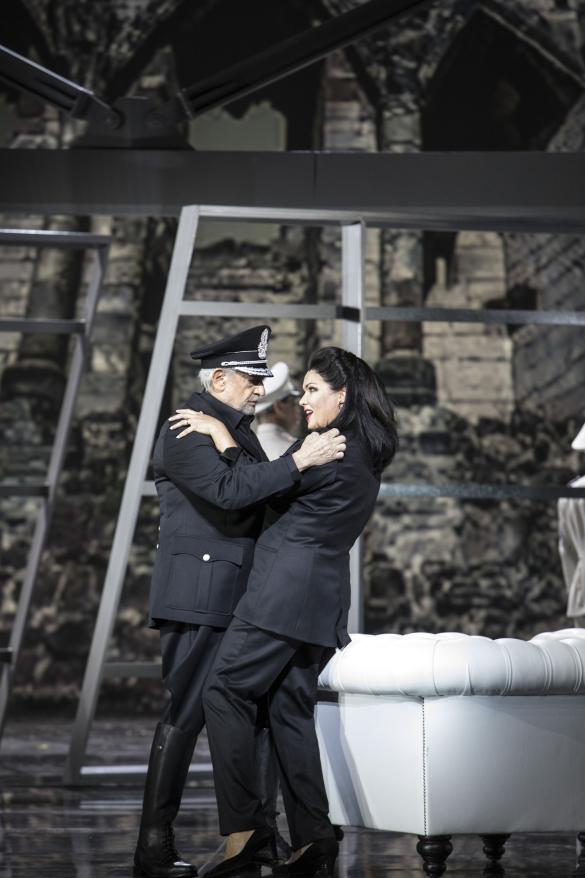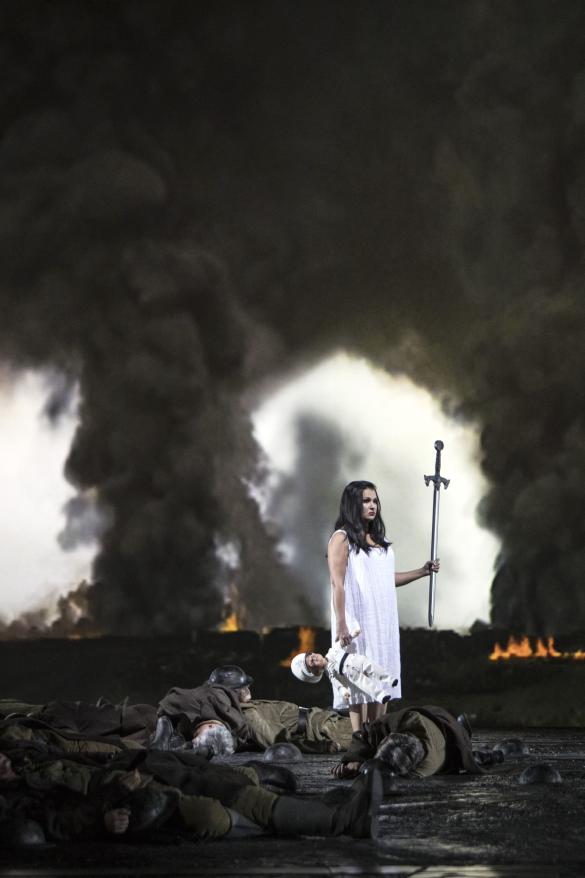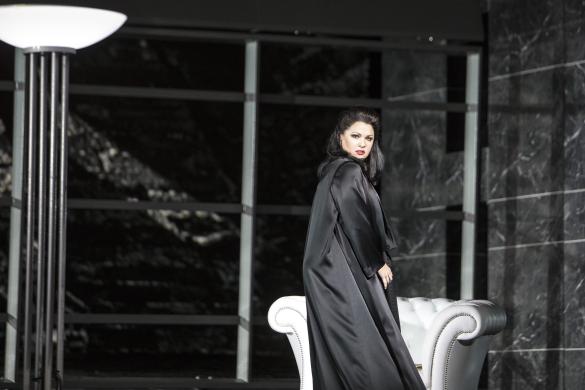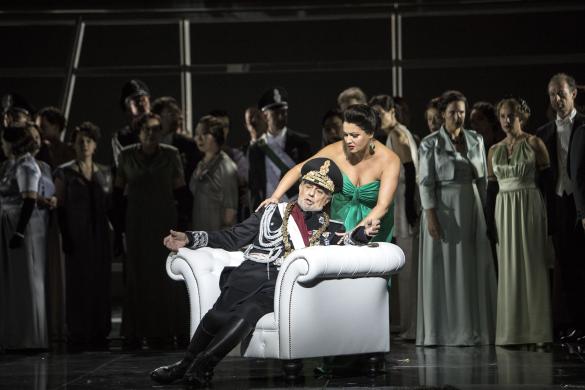Staatskapelle Berlin / Staatsopernchor
TITLE AVAILABLE IN FRANCE AND FRENCH-SPEAKING TERRITORIES
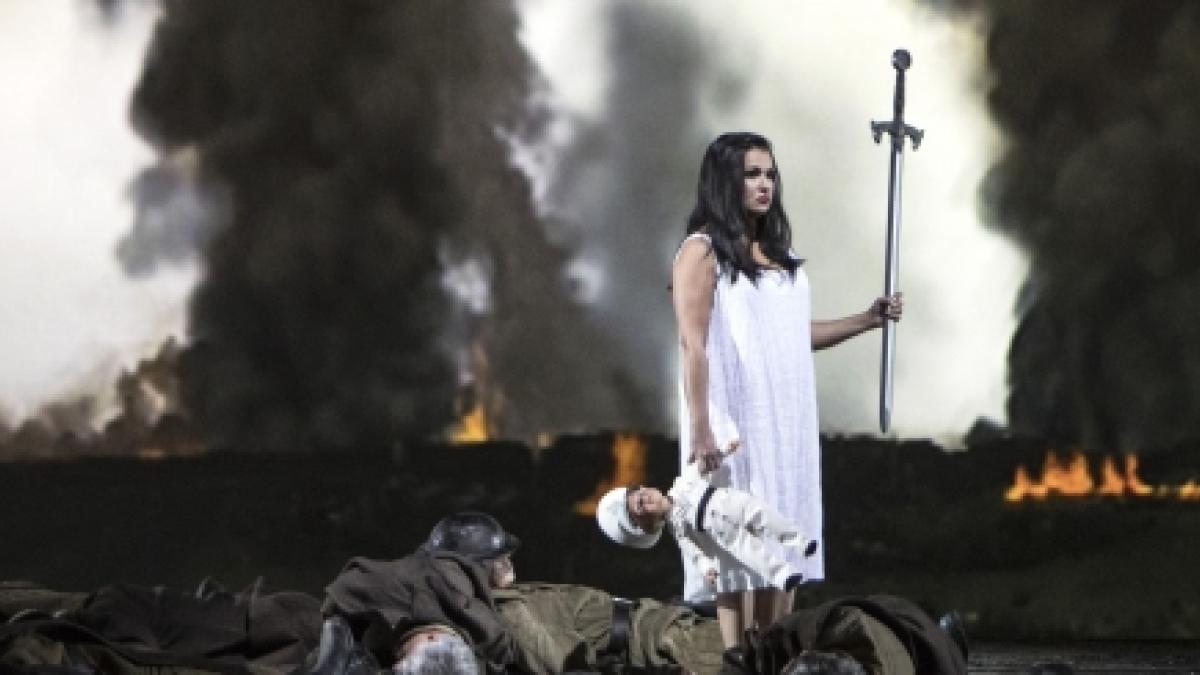
Main informations
After winning in battle, Commander Macbeth receives a prophesy that he will one day become King of Scotland. Influenced by the whisperings of his wife, he literally stops at nothing to fulfil the prophesy. But racked by guilt, the Macbeths soon sink into delusions and become victims of their own thirst for power. In order to stay as faithful as possible to the admired Shakespearean play, Giuseppe Verdi’s Macbeth shattered the operatic conventions of the time and created one of his darkest and most starkly disturbing works. Monumental choral scenes, echoing the rebellion and disillusionment of the dominated, oppressed and persecuted, demonstrate the social consequences of tyranny and despotism. These contrast with highly expressive arias and duets, in which Verdi transcends the emotional abysses of the power-obsessed protagonists. To express the many-layered motifs and emotions of his characters as diversely as possible, Verdi demanded unprecedented levels of performance from his actors: to enhance the dramatic effect, the vocal parts – instead of shining with virtuoso brilliance – are designed to emphasise aspects of language and acting and are mercilessly subjugated to the specific psychological state of the figures. He thus took a decisive step away from the ideal of the bel canto towards distinctive musical-dramatic veracity.
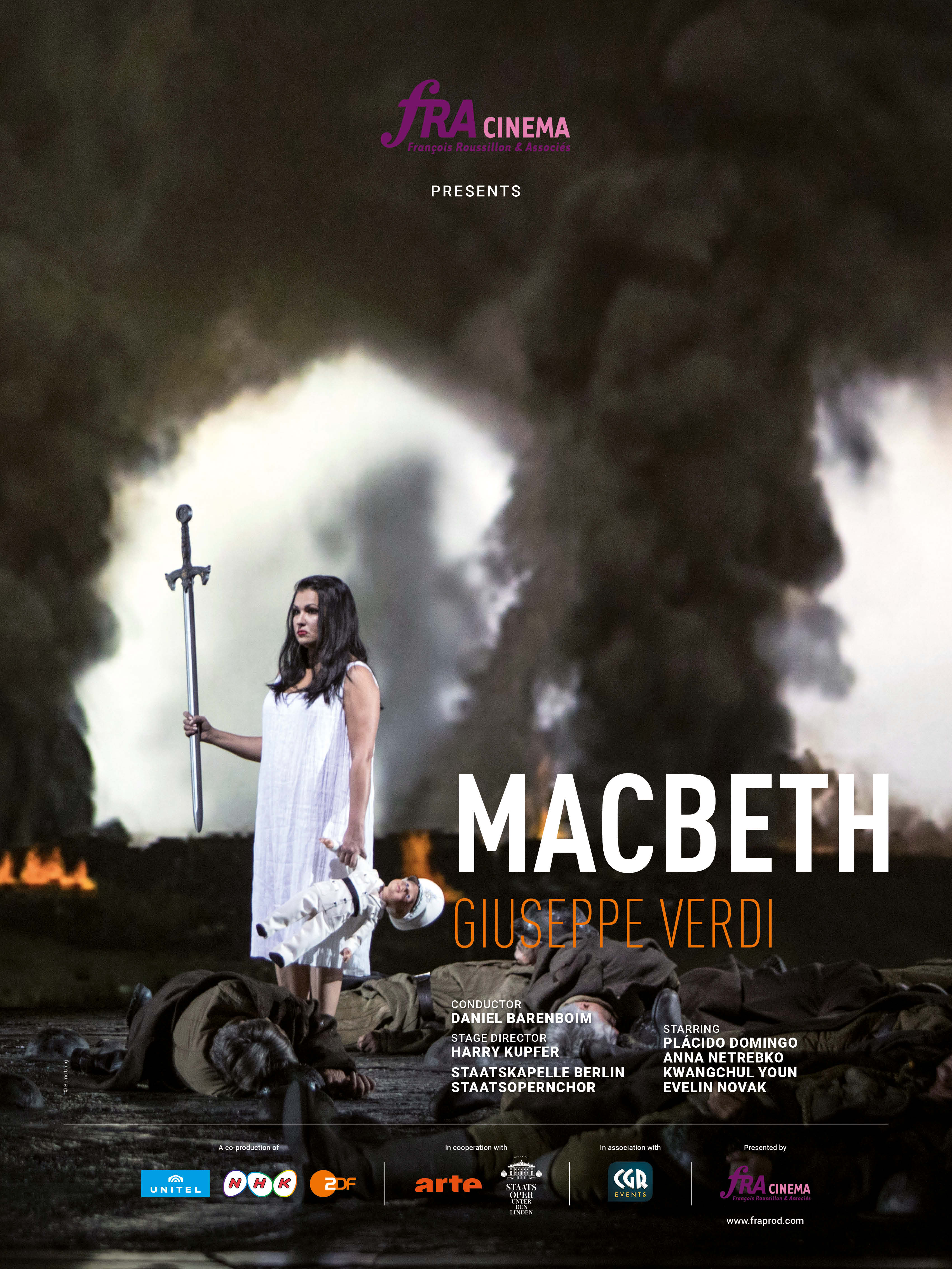
Opera in four acts (1847)
Music / Giuseppe Verdi
Libretto / Francesco Maria Piave
After William Shakespeare
Conductor / Daniel Barenboim
Director / Harry Kupfer
Sets / Hans Schavernoch
Costumes / Yan Tax
Lighting / Olaf Freese
Video / Thomas Reimer
Choreography / Helga Schiele
Dramaturgy / Detlef Giese
Staatskapelle Berlin
Staatsopernchor
Macbeth / Plácido Domingo
Banquo / Kwangchul Youn
Lady Macbeth / Anna Netrebko
Kammerfrau / Evelin Novak
Macduff / Fabio Sartori
Malcolm / Florian Hoffmann
Doctor / Dominic Barberi
Murderer, appearance / Jan Martiník
